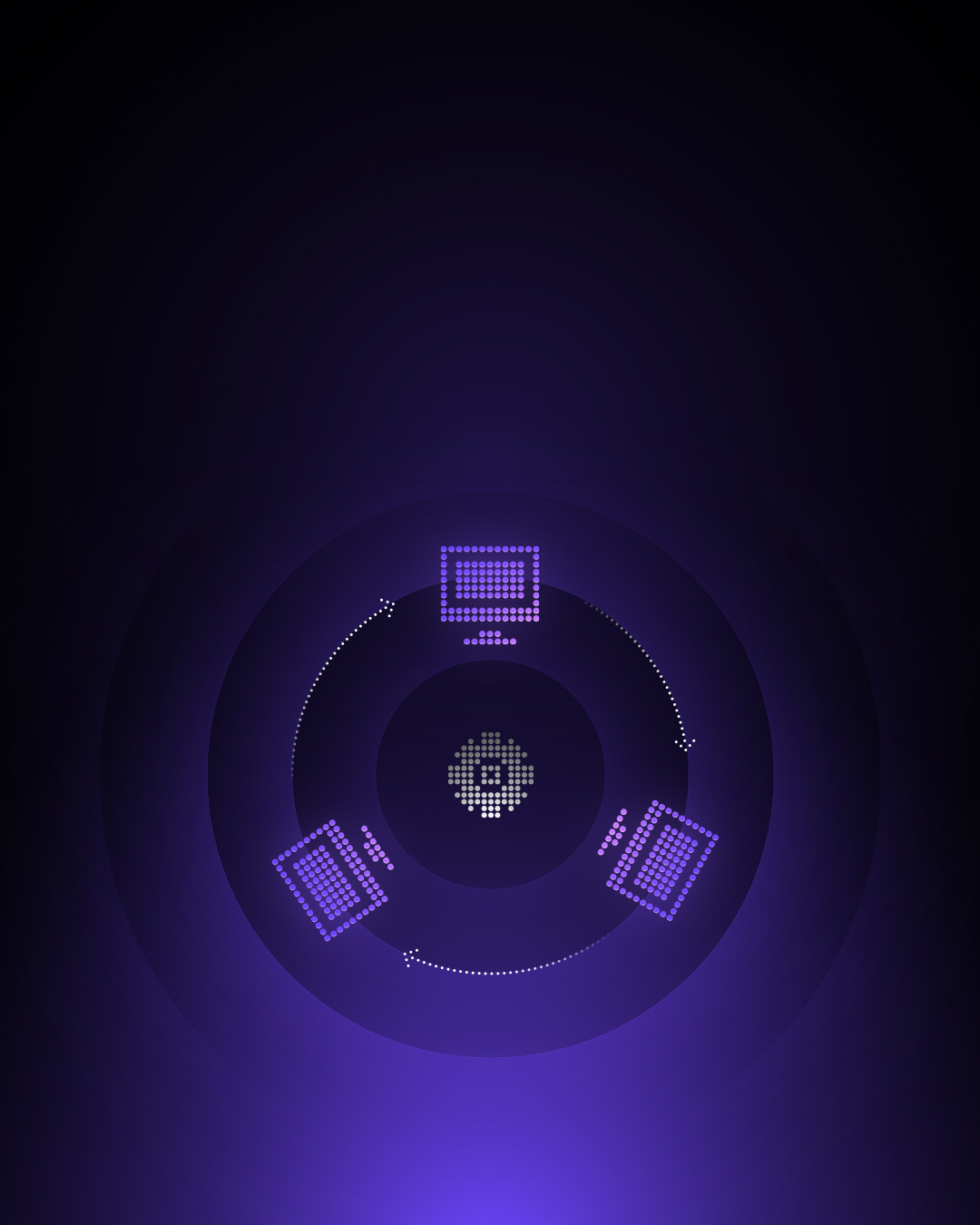
Arcium in 1000 words
At Solana Breakpoint in Singapore this year, I introduced Arcium – the first encrypted supercomputer. Our vision is to see all digital interactions to run on encryption by allowing applications to encrypt everything while still being able to compute anything. With our groundbreaking technology, we are enabling secure, confidential computing at scale, while removing any trust requirements. This isn't just about privacy – it's about unlocking new possibilities for collaboration and innovation, where data remains secure and trustless verification is built into every interaction.
The Arcium Vision
Arcium introduces a decentralized, global supercomputer that revolutionizes the internet by enabling the secure execution of any computation on fully encrypted data. Our technology creates a paradigm shift in how we approach computing and trustless interactions, allowing users to protect everything while computing anything. By supporting the execution of full-fledged computer programs in a confidential environment, Arcium empowers individuals and organizations to harness the full potential of data-driven innovation while maintaining absolute control over their sensitive information. Our vision is to become the foundational infrastructure for secure, privacy-preserving computation, opening unprecedented opportunities for secure collaboration and technological advancement across all sectors.
Key concepts
Arcium is a global, decentralized confidential computing (DeCC) network of nodes where each node acts as a single processor contributing to a single decentralized encrypted supercomputer. Only through the assembly and connection of all these processors does the supercomputer emerge with its distinct properties. At the heart of this system is arxOS, the world's first distributed, encrypted operating system designed for confidential, encrypted computations. Just as a traditional operating system manages resources and executes programs on a single machine, arxOS utilizes Multi-Party Computation (MPC) protocols to execute secure, distributed computing across the Arcium network while keeping all data inputs encrypted and private. Within this framework, users can create MPC eXecution Environments (MXEs), which function similarly to virtual machines or containers, providing secure, isolated, encrypted spaces for running complex programs confidentially in the Arcium network.
arxOS represents a leap forward in secure computation management, fundamentally different from traditional blockchain node software. While conventional blockchain networks maintain a single shared state, arxOS operates as a distributed operating system that leverages existing blockchain networks as consensus layers, without maintaining its own global state.
Unlike traditional blockchain platforms where users deploy smart contracts, arxOS allows users to create fully isolated, encrypted environments (MXEs) for confidential computation. These MXEs, analogous to VM instances on a traditional hypervisor, support a wide range of computations while maintaining data and execution confidentiality throughout the entire process. MXEs can have encrypted states exist on different ledgers and off-chain. This capability enables MXEs to read from and write to various blockchain networks and off-chain sources, treating them essentially as encrypted I/O devices. Crucially, our architecture enables the execution of arbitrary RAM programs through oblivious RAM and other oblivious data structures, allowing for fully encrypted computer programs rather than just circuit-based computations.
arxOS's power stems from its ability to allow any network participant to cryptographically identify misbehavior. By leveraging existing blockchain networks as consensus layers, it ensures network security through a staking and slashing mechanism combined with this novel cryptographic cheater identification. This introduces a new form of cryptographic accountability, enabling censorship resistance and autonomous encrypted execution. The system operates under a dishonest majority trust model, requiring only one honest node to maintain security - an unprecedented level of resilience in distributed systems.
Arcium's architecture extends beyond traditional blockchain applications, enabling both asynchronous execution of confidential smart contracts on existing networks and support for arbitrary confidential applications, even without blockchain integration. Our groundbreaking achievements in MPC protocols, particularly in efficient floating-point operations and matrix computations, coupled with hardware and GPU acceleration, allow Arcium to handle complex calculations and large-scale data processing with unprecedented speed and efficiency. This for example enables advanced machine learning on encrypted data, opening new frontiers in privacy-preserving AI and data analysis by allowing the processing of sensitive and isolated datasets without requiring to share and expose any of that data.
The system's unique staking and slashing mechanism, based on our innovative MPC protocol, guarantees trustless execution even under a dishonest majority. This robust security model, combined with Arcium's advanced computational capabilities, positions it at the forefront of secure, decentralized computing. By enabling efficient, confidential execution of arbitrary programs on encrypted data, Arcium is poised to revolutionize fields from finance and healthcare to AI, all while maintaining the highest standards of data privacy and security.
Arcium's applications
Arcium's architecture enables innovative applications across blockchain and traditional sectors. In DeFi for example, developers can leverage Arcium to create confidential trading systems akin to dark pools, allowing large trades without market disruption. Using Arcium's secure computation capabilities, developers can build secure cross-chain operations, privacy-preserving lending protocols, and confidential automated market makers, expanding the possibilities for decentralized finance.
In traditional sectors, Arcium's impact extends to finance and AI. Financial institutions can build systems for secure data processing and risk assessment. AI developers can create privacy-preserving machine learning models using diverse, encrypted datasets.
Arcium also opens new avenues for enterprise collaboration. Companies can develop tools for secure resource sharing and insights exchange across organizational boundaries. This enables confidential joint ventures and cross-company initiatives, fostering innovation while maintaining data privacy. Through Arcium, developers and organizations can create solutions that balance data utility with robust privacy protection.
Developer experience
Arcium offers seamless integration for developers, allowing them to add confidentiality and encryption to existing applications without learning new paradigms. Our powerful Arcis compiler transforms any Rust program to run on arxOS, enabling confidential execution with minimal code changes. For data scientists and machine learning experts, Arcis-Py provides a familiar Pandas/TensorFlow interface for working with encrypted data using tools they already know. Developers can easily create MXEs (encrypted environments) for confidential computation, leveraging Arcium's compatibility with existing blockchains and off-chain applications.
The future of computing
The digital landscape demands a paradigm shift in how we approach data privacy and collaborative computation. While current solutions like Fully Homomorphic Encryption and Trusted Execution Environments offer partial solutions, they fall short of enabling truly transformative applications. Arcium's approach, combining advanced Multi-Party Computation with a distributed encrypted operating system, unlocks unprecedented possibilities. By enabling secure computation on encrypted data at scale, Arcium paves the way for innovations previously thought impossible: from collaborative AI models trained on diverse, sensitive datasets without compromising privacy, to trustless confidential trading and markets. These aren't mere improvements on existing systems; they represent a fundamental reimagining of digital interaction. As data breaches escalate and privacy regulations tighten, the need for such a secure, collaborative computing infrastructure becomes not just apparent, but essential for continued innovation across industries.
To dig deeper into Arcium, visit out docs and follow us on X.
.svg)










.svg)




.svg)


























.jpg)




.jpg)

